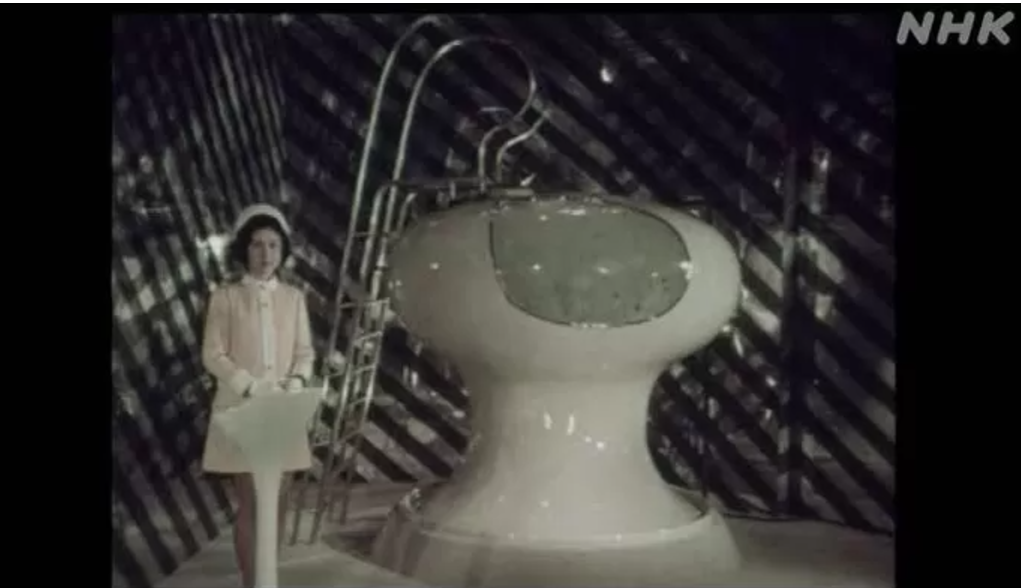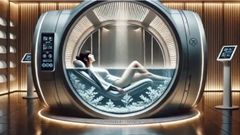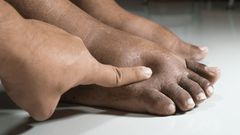In a world where tech innovation often centers on gadgets, apps, and AI, a surprising concept from Japan is making waves again: the human washing machine. This forward-thinking device, named the “Mirai Ningen Sentakuki” or “Human Washing Machine of the Future,” has been revitalized by Science Co., a company based in Osaka known for its advanced showerhead designs. With hygiene and smart technology more important than ever, many wonder if this futuristic product will change the way we approach personal care — especially in densely populated cities like Lagos, Accra, and beyond.
The story of the human washing machine dates back over half a century. At the iconic 1970 Osaka Kansai Expo, Sanyo Electric Co. — now recognized as Panasonic Holdings Corp. — shocked the world by unveiling the earliest model. The device’s egg-shaped, space-age look captivated crowds, while a demonstration of its bubble-based cleaning method became one of the expo’s surprise sensations. Among those transfixed was a young visitor, Yasuaki Aoyama. The concept of stepping into a machine for a full-body automated wash left such a deep impression on him that, decades later, Aoyama would rise to become chairman of Science Co., dedicated to carrying this vision into the 21st century.

Speaking to Japanese media ahead of the 2025 expo, Aoyama emphasized his drive to revive this legacy. “We will offer a new human washing machine as a legacy from the 1970 expo,” he reportedly announced, confirming that the modern iteration will debut at the next Osaka Kansai Expo, set for April 2025.
The original human washing machine may sound like something out of a science fiction movie, but its technology was impressively advanced for its time. Relying on ultrasound waves produced by air bubbles, the machine gently washed users without the need for vigorous physical scrubbing. For an added therapeutic touch, plastic balls were released within the chamber, offering a massage effect alongside the cleaning process. Such innovation was both a marvel and a conversation starter for visitors from around the globe — including many African dignitaries and business people who attended that historic expo.
Fast-forward to today, and the “Human Washing Machine of the Future” promises even more sophistication. Instead of the classic large bubbles, the new device employs microscopic air bubbles that claim to enhance cleansing effectiveness, potentially even helping with skin-sensitive needs. According to Science Co., the machine is fitted with high-tech sensors that keep track of the user’s heart rate and other body metrics, allowing for real-time adjustment of water temperature for maximum comfort. Moreover, Artificial Intelligence systems inside the device can reportedly assess a user’s emotional state — whether they’re stressed, relaxed, or excited. In response, the machine projects soothing images on a transparent cover, creating a serene atmosphere that adapts to the mood of the user.
These advancements may seem distant from everyday life in Nigeria or Ghana, but the intention is to make high-standard self-care more accessible — particularly for people challenged by mobility issues, time restrictions, or crowded urban living spaces. With a growing middle class across African cities and a hunger for tech solutions that simplify daily routines, local experts like Dr. Funmi Adeoti, a Lagos-based wellness researcher, believe the technology could resonate: “With traffic, work stress, and inconsistent access to running water, a self-cleaning system that is water-efficient and convenient could actually be relevant for Nigerian urban centers, if it’s made affordable.”
Industry analysts point out potential benefits for healthcare and elder care, too. Automated bathing systems like this could support caregivers in hospitals or at home, easing the burden on families of elderly or physically challenged individuals. According to Professor Kwame Mensah from the University of Ghana, “Such technology, if properly localized, could help address hygiene challenges in some West African hospitals where resources are stretched.”
Nonetheless, skepticism remains. Affordability is a concern, as high-tech personal hygiene devices often come with premium price tags. Dr. Amaka Nwosu of Abuja Medical Center commented that, “The main barrier to adoption in sub-Saharan Africa is price — if the unit remains costly, uptake will be slow outside elite neighborhoods.” She cautioned that priorities like clean water and basic medical supplies must not be overshadowed by fascination with luxury gadgets.
Environmental considerations are also key. With water scarcity an ongoing issue across many African regions, any new hygiene product must be highly water-efficient. Science Co. claims that its device is designed to minimize water and soap usage, but an independent review of these claims is yet to be published. Eco-advocacy groups in Africa stress the importance of full transparency from manufacturers before introduction to local markets.
If the device lives up to its promises, it could find roles beyond residential users. Hospitality businesses, high-end spas, wellness centers, and even airports might see the machine as a value addition, especially where quick, contactless hygiene solutions are in demand. There’s also speculation around use in isolation wards or during outbreaks, helping to maintain uncompromising cleanliness while reducing direct caregiver contact.
On the global stage, Japan’s renewed human washing machine initiative is reigniting discussions about the future of hygiene, automation, and personal well-being. Some tech enthusiasts compare it to the rise of self-driving cars or “smart” home appliances: initially intriguing, but quickly becoming indispensable in places where convenience and efficiency are priorities.
As the world looks toward Osaka Kansai Expo 2025, Nigerian and West African audiences may wonder if devices like the Human Washing Machine could one day become part of everyday wellness routines from Iyana-Ipaja to East Legon. For now, experts encourage a combination of curiosity and caution: “Embrace advances but always consider cost, local adaptation, and overall health impact,” says Professor Mensah.
Do you think automated self-cleaning technology like this would work in Nigerian or Ghanaian homes, given the local challenges and lifestyles? Is this just a futuristic curiosity, or is it a tool ready for African innovation? Share your perspective and join the conversation below—your voice matters!
What’s your take on the modern human washing machine — necessity, luxury, or somewhere in between? Drop your comments and don’t forget to follow us for the latest on tech and lifestyle updates in Nigeria, Ghana, and across Africa.
Have a story, tip, or opinion to share? We want to hear from you! Send your news, personal experiences, or story pitches to story@nowahalazone.com and get your story featured or discuss story sales.
Stay in touch and follow our conversations on social media for more updates on innovative tech, local trends, and West African perspectives:
Facebook |
X (Twitter) |
Instagram
For general support, reach us at support@nowahalazone.com.
Your story matters—let us help you get it out to the world!










